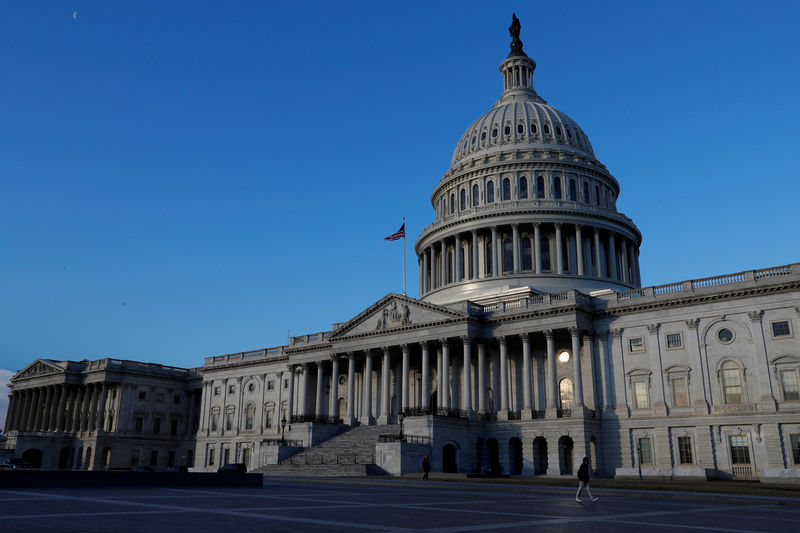By Timothy Gardner
WASHINGTON (Reuters) - Representatives from more than 70 companies met with U.S. lawmakers on Wednesday to push for a tax on carbon emissions to fight climate change, and a senator said bipartisan legislation containing such a plan could be introduced in weeks.
The gathering, which included PepsiCo (NASDAQ:PEP), Johnson & Johnson (NYSE:JNJ), Tesla (NASDAQ:TSLA) and General Mills (NYSE:GIS), was the largest business group in a decade to advocate at the Capitol for climate legislation.
The companies were seeking to be heard as lawmakers consider more aggressive plans to tackle climate change.
Most of the Democratic candidates in the 2020 presidential election including Bernie Sanders, Kamala Harris and Elizabeth Warren have embraced the Green New Deal, a set of policy goals introduced by congressional Democrats to transform the energy system to 100% renewable sources by 2030, using federal funds to invest in infrastructure and green jobs.
Senator Chris Coons, a Democrat, told reporters after hosting one of the meetings on a carbon tax with about six representatives of companies and lawmakers from both parties that a price on carbon has been widely recognized as "the single most important lever we can pull" to fight climate change.
Coons said he hopes to introduce a bipartisan bill in weeks to put a fee on carbon. A similar bill that would return a dividend on the carbon fee revenues to taxpayers has been introduced in the House.
Michelle Patron, a sustainability director at Microsoft (NASDAQ:MSFT), said her company had taken voluntary steps including an internal carbon tax but that business could not do everything.
"But no matter how much any one company does, federal policy is needed to drive large-scale change," Patron said.
Carbon fees face an uphill battle as no Republicans in the Senate publicly support the idea yet. Some Republicans, such as Senator Lamar Alexander, back legislation to boost innovation in nuclear power, batteries, natural gas technology and renewable energy.
Companies pushing for the carbon tax included BP (LON:BP) and Shell (LON:RDSa) which earlier this week each donated $1 million to the Americans for Carbon Dividends political action committee of the Climate Leadership Council.
The PAC has embraced a proposal by Republicans, including former secretaries of state James Baker and George Shultz, for a carbon tax returning revenues to consumers. The plan is for an initial $40-a-ton tax on carbon dioxide that would increase over time.
Companies contributing to that group have faced criticism from environmentalists that the plan calls for a reduction in U.S. regulations on climate pollution and for companies to be shielded from some lawsuits over climate change.
BP and Shell did not immediately respond to a request for comment.
Coons said while businesses seek what is in their own best interests, it does not mean they are not honestly trying to participate in a process that could have benefits for the climate.

"If they are part of a multi-industry, multi-company effort to press for a carbon tax ... that will hopefully have an impact on the most significant resistance politically in Congress to a carbon fee," Coons said.